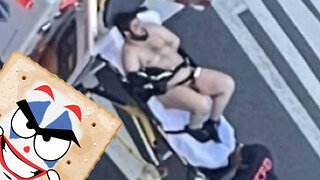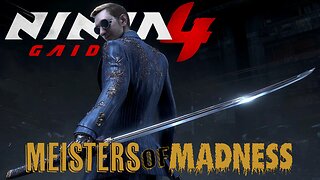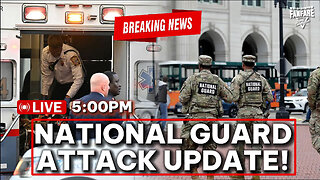Premium Only Content

Return of 700,000-strong Russian army in Ukraine is not allowed_ Putin calls them a potential risk
FOLLOW US!
When President Vladimir Putin this year praised Ukraine’s war veterans as “the elite defending the Motherland,” he called them a generation of men ready to lead Russia into the future.
“It’s not scary to hand over the country to such people,” he said.
But the return of Russian soldiers from Ukraine is already creating tensions in families and communities, with violent crimes making headlines and neighbors on edge. Some 700,000 men are still fighting, and the country now faces a much bigger test: what will happen when they all return home.
“War veterans often struggle to integrate into civilian society, even with the help of psychological support and rehabilitation programs,” Dr. Jenny Mathers, senior lecturer in international politics at Aberystwyth University, told The Moscow Times.
“The lack of such support for many Russian war veterans, combined with the emphasis in Russian society on men displaying certain types of masculine behavior, such as toughness, concealing softer emotions such as sadness or fear, will further complicate the situation,” said Mathers, whose research focuses on Russia’s war in Ukraine.
The number of soldiers returning to the front who commit crimes is steadily increasing. Experts warn that in some cases, only a short time elapses between sentencing and being sent to the front, raising concerns that these fighters may turn their anger on those involved in their persecution upon their return.
The Crime Victims Support Fund called in March for an end to the practice of pardoning men convicted of serious crimes in exchange for fighting in Ukraine.
The Kremlin is well aware of these dangers. Putin himself, Reuters reports, has identified the returning soldiers as a potential risk to social stability.
One source told Reuters that the aim is to avoid a repeat of the social upheaval that followed the Soviet Union’s war in Afghanistan, when veterans returned but found little support and later fueled organized crime in the turbulent 1990s.
To minimize public anxiety, the Kremlin has instructed pro-government media outlets to downplay the number of crimes committed by veterans, the exiled news website Meduza reported. Experts warn that the return of thousands of men from the battlefield could also trigger a mental health crisis in Russia. Nikolai Khlyzov, the human rights commissioner in Siberia’s Transbaikal region, said that men returning from combat were reluctant to attend psychotherapy and urged soldiers to visit psychologists with their families.
"They say, 'What, am I sick or something? What if I were put on some list — then I could lose my driver's license and not be able to get a job,'" Khlyzov said.
-
 1:35:45
1:35:45
Tucker Carlson
4 hours agoTucker Puts Piers Morgan’s Views on Free Speech to the Ultimate Test
29.2K137 -
 2:06:16
2:06:16
TheSaltyCracker
4 hours agoMedia Justifies Attack on National Guard ReeEEStream 11-26-25
79.6K227 -
 3:54:35
3:54:35
Mally_Mouse
7 hours ago🎮 Let's Play!!: Stardew Valley pt. 34
36.7K2 -
 18:25
18:25
MetatronHistory
2 days agoThe REAL Origins of the Macedonians
17.1K3 -
 1:22:12
1:22:12
MattMorseTV
4 hours ago $143.06 earned🔴It’s MUCH WORSE than WE THOUGHT. 🔴
121K171 -
 7:22:09
7:22:09
Meisters of Madness
8 hours agoOmega Gaiden - Part 4
16.6K -
 2:51:18
2:51:18
Barry Cunningham
7 hours agoBREAKING NEWS: NATIONAL GUARD ATTACK PRESS CONFERENCE AND LIVE UPDATES!
69.3K47 -
 LIVE
LIVE
SilverFox
3 hours ago🔴LIVE - ARC AT NIGHT! COME THRU!
271 watching -
 2:46:09
2:46:09
Joker Effect
3 hours agoCLAVICULAR - What the hell is "Looks Maxing"? Asmond Gold is a Demon. KaceyTron. Steve Will do it.
26K3 -
 LIVE
LIVE
SlingerGames
3 hours agoLIVE - Wumble Wednesday - BIRTHDAY STREAM!
81 watching